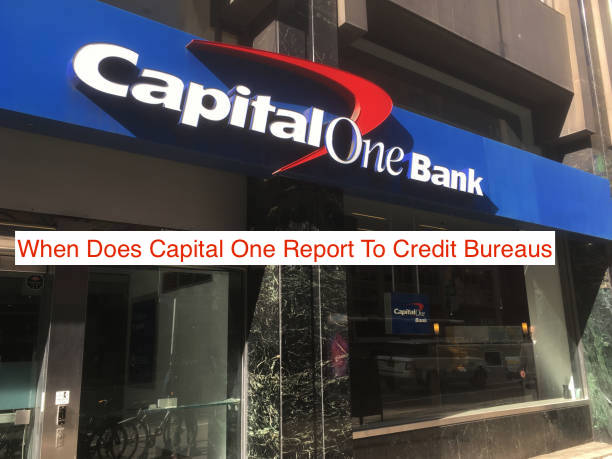When you apply for credit cards, you need to know whether or not they’ll affect your credit history, and how soon they’ll impact your score if you are approved.
One card issuer that receives many inquiries from consumers about this topic is Capital One, so this post will cover the answers to these frequently asked questions:
When does Capital One report to credit bureaus, how does Capital One report to credit bureaus, and how do you know if Capital One reports to credit bureaus?
When Does Capital One Report To Credit Bureaus
Capital One reports credit card accounts to the three major credit bureaus as follows:
Include your capital one business card.
- Any purchases you make with a capital one credit card on or after the date you set up your account are reported to the three major credit bureaus.
- Balance transfers and cash advances will be reported to the three major credit bureaus at different times, depending on what type of transaction it is.
- Accounts closed by request (if someone requests that their account be closed) will be reflected in their credit bureau report for 10 years from the day of closure.
If the person who has requested the closure fails to pay any remaining balance before the account is closed, this unpaid balance will appear on their credit bureau report for seven years from the day of closure.
If they paid off some of their outstanding balance before closing their account, this reduced amount will appear on their credit bureau report for seven years from the day of closure.
How Often Capital One Reports To Credit Bureaus
Most credit bureaus list the date on which an account is opened as the date a monthly report is generated.
If the account was opened on January 5th, for example, then that credit bureau would say that Capital One reports to them on the first of every month.
Some do not, however, and there is no standardized time of day at which this information is updated. For those who don’t, the last reported date will be listed instead.
For these accounts, Capital One may have already reported in September but it won’t show up until October when they generate their next report – and likewise, it could show up in November if they generate their report in November.
The reporting schedule varies by credit bureau so it can vary by an individual consumer, depending on where they check their score.
It should also be noted that some of the older data have been purged from many credit bureaus’ records because the 10-year limit has been reached and the data is considered stale or irrelevant.
Why Credit Utilization Is Important
Credit utilization is the most important number on your credit report when it comes to being approved for loans and other credit lines.
When you have high credit utilization (i.e., 50% or more of your total available credit), this can signal that you are in financial trouble.
This means you may be using all of your available credit, which could mean that you’re maxed out or close to maxing out on the card, but it also means that one late payment could tip you over into default territory.
It’s a fine line to walk: Too much credit can signify a high level of risk while too little might not reflect how well you manage your finances.
It’s best to keep balances low by paying off debt as soon as possible while still maintaining a good balance on at least one account.
If you have an emergency expense come up, such as a car repair or medical bill, try to pay down your debt before taking out any new credit.
A lot of people don’t know what they need to do if they want to rebuild their credit after it has been destroyed.
You should first ask yourself why your credit was destroyed in the first place-did you lose track of payments. Did you go into collections?
Were you sued? These situations will affect your ability to get back on top, so remember that even if there is nothing you can do about the past, there are plenty of steps you can take now to ensure a brighter future.
To start rebuilding your credit score, stop making purchases with the cards that caused it damage and apply for secured cards instead.
Secured cards require a security deposit and give access to certain types of lending products like mortgages, car loans, and personal loans.
How Can I Improve My Credit Utilization?
Credit utilization is the relationship between how much credit you’re using and how much you have available.
Having a low credit utilization can help boost your score, so if you want to improve your credit, it’s important to know what percentage of available credit you are using and what that means for your credit score.
For example, if you only use 10% of your available credit every month and spend wisely while using a reasonable amount of money each month, it should be relatively easy to maintain a good balance.
However, if you have all your credit cards maxed out and don’t pay off the full balance on time each month, your monthly payments will decrease with larger amounts due in one lump sum at the end of the year.
Maintaining this behavior over time will negatively affect your credit score.
What Day Of The Month Does Capital One Report To The Credit Bureaus?
Capital One reports to the credit bureaus monthly, but the month can vary depending on your credit score. For example, if you have a 600 or higher score, they will report each month.
If you have a score lower than 600, they will report every 6 months instead of monthly. For them to be able to make this determination, they need your authorization.
They will not automatically pull this information from your credit file. You need to contact them directly by phone and request it.
Keep in mind that even if you are authorized, they may not grant your request because they want to see if there is an improvement in your credit score before reporting more often.

